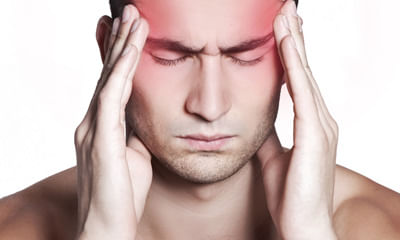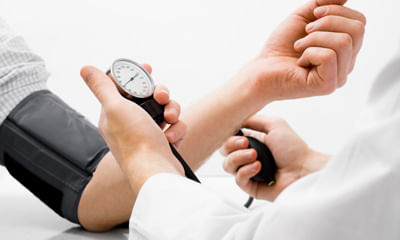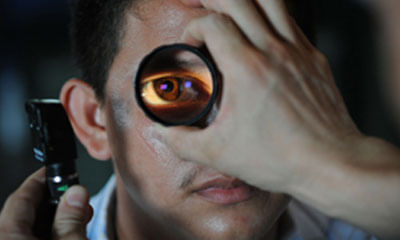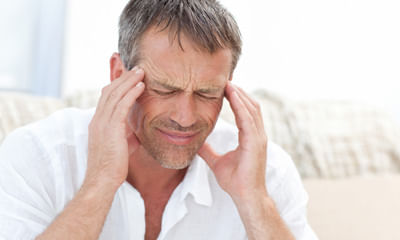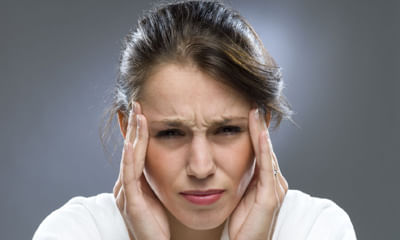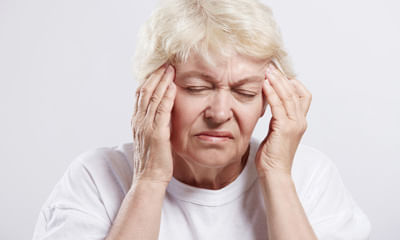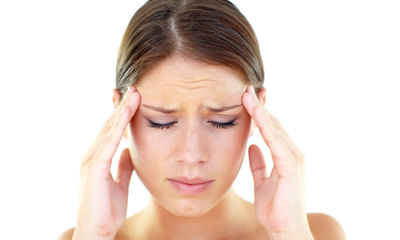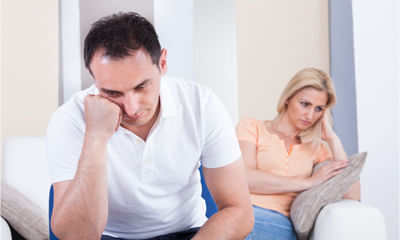Nose Injury And Headache
I am 16 years old. I am feeling dizziness and headaches for quite some time now. My body feels so tired that sometimes i ...
Ask Free Question
You need to consult an ent for a checkup asap. Stop using ear buds. U might have injured your inner ear. 1. Do saline gargles daily (preferably twice). 2. Whenever possible do steam inhalation also. 3. Cover your nose and mouth with hanky for at least 30 sec when you go in dusty areas also when you go in and out of ac. As our nose is the most sensitive part of our body, when there is temperature difference between two rooms or inside n outside, then if we not protect our nose, it gets affected. 4. Drink hot liquids --hot liquids relieve nasal congestion, prevent dehydration, and soothe the uncomfortably inflamed membranes that line your nose and throat. 5. Sleep with an extra pillow under your head-- elevating your head will help relieve congested nasal passages. If the angle is too awkward, try placing the pillows between the mattress and the box springs to create a more gradual slope. 6. Treat that stuffy nose with warm salt water-- salt-water rinsing helps break nasal congestion, while also removing virus particles and bacteria from your nose. 7. Blow your nose often (and the right way)-- it's important to blow your nose regularly when you have a cold rather than sniffling mucus back into your head. But when you blow hard, pressure can carry germ-carrying phlegm back into your ear passages, causing earache. The best way to blow your nose: press a finger over one nostril while you blow gently to clear the other. Homeopathic treatment has very encouraging results. Consult online for details.
My mom had nosebleed in the last year due to high bp. My mom say's that her head is paining too much. How can it be cure ...
Ask Free Question
Headaches might arise because of another medical condition, such as swollen sinuses or head injury. But we have to look into the details of the problem.Let's have a detailed discussion to Ensure proper treatment.
Almost 12 years ago, I was hit by a cricket wicket on skull. Which caused bleeding from nose. Is this dangerous or norma ...
Ask Free Question
Head injury may be closed or open. A closed head injury is one where something hit you very hard on your head but the object did not break your skull. Let's have a detailed discussion to ensure proper treatment.
Most of the time I had pulling like sensation in back of head ,pain ,and when I play football ,the pulling and tightness ...
Ask Free Question
Experiencing tingling or pins-and-needles in your head can be unsettling. These sensations can affect neighboring parts of your body, too, such as the face and neck. You might also feel numbness or burning. Most of the conditions that cause tingling in the head aren’t serious. In rare cases, head tingling can be a sign of a serious medical problem. The sinuses are a series of connected cavities behind your nose, cheeks, and forehead. Infections such as colds, flus, and sinusitis can cause the sinuses to become swollen and inflamed. Enlarged sinuses can compress nearby nerves, leading to head tingling. Head injuries could also be one of the major cause of your problem. Injuries that impact the base of the skull can damage nerves inside the brain. This can lead to symptoms such as facial paralysis, numbness, or tingling. You may need a complete examination for your scalp to identify the accurate cause and its possible treatment.
Hi, I have been having headaches after severe accident which took place some 17 years ago and I had a slip disc in 2 of ...
Ask Free Question
Chiropractic adjustment will help. During a headache, try to close your right nose and your left nose to breathe. In about 5 mins, your headache will go.
I am 20 year and 2 months old, I am suffering from cold from 1 week, and continue headache mostly on left side of face , ...
Ask Free Question
Typical tb symptoms are cough with phlegm, evening fever, night sweats, loss of weight for 2 weeks or more. Blood in nose could be because of local injury or dryness of an area in nose called 'littles area' do get an ent specialist to check you.
Hi Sir, I am 28 years old and feeling very low, feeling vomiting, headache and dizziness, back pain. Please suggest what ...
Ask Free Question
It’s often alarming to have a headache and dizziness at the same time. However, many things can cause the combination of these two symptoms, from dehydration to anxiety. We’ll go over the signs that your headache and dizziness might be a sign of something more serious before diving into other, more common potential causes. Is it an emergency? While rare, a headache with dizziness can sometimes indicate a medical emergency that requires immediate treatment. Brain aneurysm A brain aneurysm is a balloon that forms in the blood vessels of your brain. These aneurysms often don’t cause symptoms until they rupture. When they do rupture, the first sign is usually a severe headache that comes on suddenly. You may also feel dizzy. Other symptoms of a ruptured brain aneurysm include: nausea and vomiting blurred vision neck pain or stiffness seizures sensitivity to light confusion loss of consciousness a droopy eyelid double vision If you have a severe headache and feel dizzy or notice any other symptoms of a ruptured brain aneurysm, seek emergency medical treatment. Stroke Strokes occur when something interrupts the flow of blood to a part of your brain, cutting off the supply of oxygen and other nutrients it needs to function. Without a steady blood supply, brain cells quickly start to die. Like brain aneurysms, strokes can cause a severe headache. They can also cause sudden dizziness. Other symptoms of a stroke include: numbness or weakness, often on one side of the body sudden confusion trouble speaking or understanding speech sudden vision problems sudden difficulty walking or maintaining balance Strokes require quick treatment to avoid lasting complications, so seek emergency treatment as soon as you notice any symptoms of a stroke. Here’s how to recognize the signs of a stroke. Migraine Migraines are intense headaches that happen on one or both sides of your head. People who often get migraines describe the pain as throbbing. This intense pain can be accompanied by dizziness. Other symptoms include: nausea and vomiting sensitivity to light or sound trouble seeing seeing flashing lights or spots (aura) There’s no cure for migraines, but certain things may help to reduce your symptoms or prevent them in the future. The effectiveness of different treatments tends to vary from person to person, so it’s a good idea to work with your doctor to find a treatment that works best for you. In the meantime, you can try these 10 natural ways to soothe a migraine. Head injuries There are two types of head injuries, known as external and internal injuries. An external head injury affects your scalp, not your brain. External head injuries may cause a headache, but usually not dizziness. When they do cause a headache and dizziness, it’s usually mild and goes away within a few hours. Internal injuries, on the other hand, often cause both headaches and dizziness, sometimes for weeks after the initial injury. Traumatic brain injury Traumatic brain injuries (TBIs) are usually caused by a blow to the head or violent shaking. They often happen due to car accidents, hard falls, or playing contact sports. Both headaches and dizziness are common symptoms of mild and severe TBIs. Additional symptoms of a mild TBI, such as a concussion, include: temporary loss of consciousness confusion memory problems ringing in the ears nausea and vomiting Other symptoms of a more severe TBI, such as a skull fracture, include: loss of consciousness for at least several minutes seizures fluid draining from the nose or ears dilation of one or both pupils severe confusion unusual behavior, such as aggression or combativeness If you think you or someone else might have a TBI, it’s important to contact a doctor right away. Someone with a mild TBI may just need to go to urgent care to make sure there’s no major damage. However, someone with a more severe TBI needs to go to the emergency room right away. Post-concussion syndrome Post-concussion syndrome is a condition that sometimes happens after a concussion. It causes a range of symptoms, which usually include a headache and dizziness, for weeks or even months after the original injury. The headaches associated with post-concussion syndrome often feel similar to migraines or tension headaches. Other symptoms include: trouble sleeping anxiety irritability memory or concentration problems ringing in the ears sensitivity to noise and light Post-concussion syndrome isn’t a sign that you have a more serious underlying injury, but it can quickly get in the way of your day-to-day life. If you have lingering symptoms after a concussion, talk to your doctor. In addition to ruling out any other injuries, they can come up with a treatment plan to help manage your symptoms.
What are the side effects of taking viagra for long time because I do not have sufficient erection while sex and I am ex ...
Ask Free Question
First try to analyse what could be the reason for your problem. And rectify it. And the way you are going with is not the right method. Use any medication under medical supervision.
I have a problem of respiration at night. One side of my nose blocked. Please help me about this. ...
Ask Free Question
1 WARNING SYMPTOM: You sneeze on smelling an allergen such as perfume, dust or animal hair COULD BE: Allergic rhinitis, an inflammation of the nasal passageways. The allergen triggers the production of immunoglobulin E (IgE) antibody, which binds to cells containing histamine and causes a blocked and runny nose. EXPERT OPINION: Forty per cent in the UK may have some form of this. TREATMENT: Antihistamine tablets or steroid nasal sprays. In extreme cases heat is applied to create scar tissue and open up the airway. 2 WARNING SYMPTOM: Sprays and drugs have no effect COULD BE: Deviated septum. The septum is a wall of cartilage and bone dividing the nasal cavity into two nostrils. Sometimes, through an injury in childhood, it becomes slightly distorted, interfering with breathing in adulthood. TREATMENT: ‘Surgery is the only option. A septoplasty is carried out under general anaesthetic to straighten the septum.’ 3 WARNING SYMPTOM: You blow your nose and usually nothing comes out COULD BE: Nasal polyps – swellings on the lining of the sinuses that may block the nasal airways. EXPERT OPINION: Mr Nicholas Eynon-Lewis, consultant ENT surgeon at St Bartholomew’s Hospital, London, says: ‘Symptoms include loss of smell, mucus draining down the throat and a change in your voice. Polyps can block the drainage of the sinuses and lead to sinusitis.’ TREATMENT: ‘Polyps can be treated with steroid nasal drops or spray and may require oral steroids. If symptoms don’t improve, surgery may be necessary.’ This will reduce the risk of them returning, though they often do. 4 WARNING SYMPTOM: You feel as though you have permanent flu COULD BE: Seasonal allergic rhinitis (hay fever), an allergy to pollen. EXPERT OPINION: ‘Sufferers may experience headaches and flu-like symptoms such as aching and shivering alongside a blocked or runny nose,’ says ENT Surgeon Myles Black at East Kent Hospital University Trust. TREATMENT: If symptoms affect only your nose, try antihistamine sprays such as Azelastine. Decongestants like Mometasone are effective at reducing swelling in the nose and clearing the blockage. ‘Don’t use for more than a few days as these can cause “rebound congestion” where the spray causes a blocked nose,’ says Mr. Black. Prescription steroids, which ease inflammation, can be used more frequently. 5 WARNING SYMPTOM: Blocked nose in the evenings COULD BE: Non-allergic rhinitis, when the inside of the nose is swollen and inflamed. Caused by dry, air conditioned offices and large turbinates (bits of bone just inside the nose) causing the nasal lining to be swollen and inflamed. EXPERT OPINION: Symptoms get gradually worse and it may take until the age of 40 before becoming a real problem. ‘Blood supply increases to the nose in the evening, so symptoms will be exacerbated then,’ says Dr. Al-Ayoubi. Medications including beta-blockers, aspirin and the Pill can cause a blocked nose. TREATMENT: ‘Work with windows open,’ says Dr. Al-Ayoubi, ‘Try a nasal decongestant spray to reduce swelling. In acute cases, enlarged turbinates can be treated with lasers.’ 6 WARNING SYMPTOM: Childhood snoring COULD BE: Adenoids, small glands at the back of the nose that usually disappear by adulthood. Enlargement can cause breathing problems in children. Breathing through the mouth rather than the nose causes snoring. EXPERT OPINION: Most problems disappear by the age of ten. TREATMENT: Can be surgically removed. ‘As they rarely affect adults, if there is a problem this needs investigation to rule out the possibility of a (rare) cancerous growth,’ says Dr. Al-Ayoubi. 7 WARNING SYMPTOM: Your face hurts all the time COULD BE: Sinusitis. The sinuses are air-filled spaces within the bones of the face, around the nose, lined with mucus-producing cells to prevent the nose drying out. Sinusitis is inflammation of this lining. EXPERT OPINION: Usually it gets better within a month (acute sinusitis). If it lasts more than 12 weeks, it’s called chronic sinusitis. You may also get an excess of green or yellow phlegm. TREATMENT: ‘It’s usually caused by a virus so won’t respond to antibiotics,’ says ENT surgeon and consultant otolaryngologist Mr. Nabil Salama at the BMI The Blackheath Hospital. A warm flannel on the face can ease pain and discomfort. ‘In some cases, sufferers will be offered an operation known as balloon sinuplasty to open and drain the sinuses.’ 8 WARNING SYMPTOM: You feel anxious and irritable COULD BE: An overactive thyroid, which also causes shaking, weight-loss and anxiety. EXPERT OPINION ‘An overactive thyroid produces excess thyroid hormones. This speeds up metabolism and increases blood supply to the nose, which may cause it to feel blocked,’ says Mr. Salama. TREATMENT: Sufferers can be given a dose of radioactive iodine. As the radioactivity builds up, it destroys some thyroid tissue, allowing thyroid hormones to drop to normal. Your doctor may suggest an operation to remove all or part of the thyroid gland.
Sir my age 21 am doing masturbation weekly 2 times I don't know how to stop masturbation like a aditer. Please tell me s ...
Ask Free Question
No need to stop and it is good. People wrongly believe that masturbation is a bad habit, or sin and it causes loss of energy and many side effects can occur. All these are myths and it is a safe act to give vent to sexual drive in men who cannot do sex. People fear if they have adverse effect on marriage or that their energy is wasted and such many funny misbeliefs are going around and all are not true. One can do as many times as he feels and health or energy is not affected or there will be no effect on marriage Masturbation is the self-stimulation of the genitals to achieve sexual arousal and pleasure, usually to the point of orgasm (sexual climax). It is commonly done by touching, stroking, or massaging the penis or clitoris until an orgasm is achieved. Some women also use stimulation of the vagina to masturbate or use "sex toys, such as a vibrator. Just about everybody. Masturbation is a very common behaviour, even among people who have sexual relations with a partner. In one national study, 95% of males and 89% of females reported that they have masturbated. Masturbation is the first sexual act experienced by most males and females. In young children, masturbation is a normal part of the growing child's exploration of his or her body. Most people continue to masturbate in adulthood, and many do so throughout their lives. In addition to feeling good, masturbation is a good way of relieving the sexual tension that can build up over time, especially for people without partners or whose partners are not willing or available for sex. Masturbation also is a safe sexual alternative for people who wish to avoid pregnancy and the dangers of sexually transmitted diseases. It also is necessary when a man must give a semen sample for fertility testing or for sperm donation. When sexual dysfunction is present in an adult, masturbation may be prescribed by a sex therapist to allow a person to experience an orgasm (often in women) or to delay its arrival (often in men). While it once was regarded as a perversion and a sign of a mental problem, masturbation now is regarded as a normal, healthy sexual activity that is pleasant, fulfilling, acceptable and safe. It is a good way to experience sexual pleasure and can be done throughout life. Masturbation is only considered a problem when it inhibits sexual activity with a partner, is done in public, or causes significant distress to the person. It may cause distress if it is done compulsively and/or interferes with daily life and activities. In general, the medical community considers masturbation to be a natural and harmless expression of sexuality for both men and women. It does not cause any physical injury or harm to the body, and can be performed in moderation throughout a person's lifetime as a part of normal sexual behaviour. Some cultures and religions oppose the use of masturbation or even label it as sinful. This can lead to guilt or shame about the behaviour. Some experts suggest that masturbation can actually improve sexual health and relationships. By exploring your own body through masturbation, you can determine what is erotically pleasing to you and can share this with your partner. Some partners use mutual masturbation to discover techniques for a more satisfying sexual relationship and to add to their mutual intimacy. Sex boosts your body’s ability to make protective antibodies against bacteria, viruses, and other germs that cause common illnesses. Of course, there’s more to cultivating a robust immune system than having a healthy sex life. Eating right, exercising, getting adequate sleep, and keeping up to date with vaccinations all contribute to having strong and healthy defences against contagious illnesses. It is a good exercise .Like every other kind of physical activity, sex burns calories, too! Sitting and watching TV burns about 1 calorie per minute. Having sex increases your heart rate and utilizes various muscle groups, burning about 5 calories per minute. Regular sex cannot replace sessions at the gym, but a having an active, healthy sex life is a nice way to get some extra physical activity. Sexual activity helps keep levels of hormones, like oestrogen and testosterone, in check. When these hormones are out of balance, conditions like heart disease and osteoporosis may develop. When it comes to protecting heart health by having sex, more is better. One study in men showed that those who had sex at least 2 times a week were 50% less likely to die of heart disease than their less sexually active men. Sexual stimulation (including masturbation) and orgasm can help keep pain away. Both activities can reduce pain sensation and increase your pain threshold. Orgasms result in the release of hormones that can help block pain signals. Some women report that self-stimulation through masturbation can reduce symptoms of menstrual cramps, arthritis, and even headache. One study showed that men who had frequent ejaculations (defined as 21 times a month or more) were less likely to develop prostate cancer than those who had fewer ejaculations. It did not matter if the ejaculations occurred through intercourse, masturbation, or nocturnal emissions.

